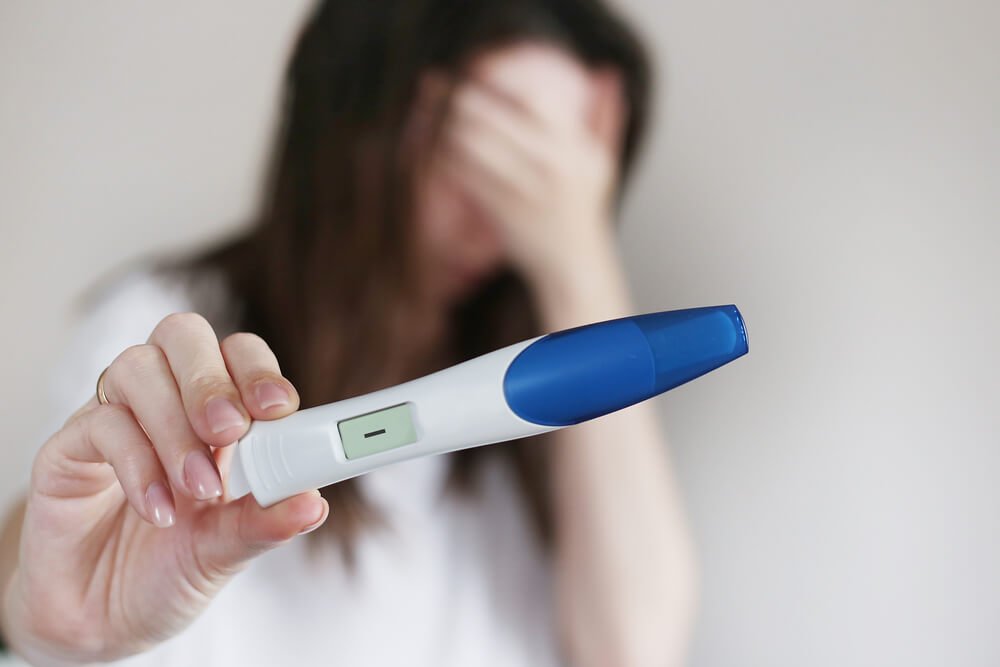When a woman cannot conceive naturally after unprotected sex of 12 months, it is known as female infertility. It is diagnosed when a woman tries to get pregnant for a year (through unprotected sex) and is unsuccessful. Male infertility & female infertility is common these days, affecting many couples today.
Female infertility causes are difficult to diagnose. There are many causes of infertility, but it is difficult to point out the exact one. There can be a single cause or multiple causes for female infertility. Some of the causes of female infertility include hormonal changes, irregular periods, obesity, PCOS/PCOD, and more.
There are two types of female infertility:
- Primary: When couples fail to get pregnant even after unprotected sex for a year or so.
- Secondary: This occurs when couples can’t get pregnant again after one successful pregnancy.
Depending on the reason for infertility, there are many treatments available. The options are surgery, IVF, medications to balance hormonal issues, and so on. Many infertile women can still conceive a child without treatment also. And, many conceive after proper & regular treatment with a gynaecologist. It has now become easier to consult a gynaecologist online and take advice to help you diagnose and give the best treatment to this problem.
List of Infertility Causes in Modern Times
To get pregnant and to carry a pregnancy are both complicated tasks. Many things can go off-track during these processes leading to infertility. To know this in detail, check out the list of some of the infertility causes in females. A woman facing difficulty getting pregnant should talk to a gynaecologist online and check out all the possible treatments.
- Irregular Menstrual Cycle
- Reproductive System Problem
- Sudden Hormonal Changes
- Infections and Infertility
- Impact of Obesity in Infertility
- PCOS – Polycystic Ovary Syndrome
- POI – Primary Ovarian Insufficiency
- Uterine Fibroids
- Irregular Menstrual Cycle
A regular menstrual cycle is when a woman’s period is regular between 21 to 35 days with regular ovulation. A woman ovulates two weeks before the onset of the next menstrual cycle. A woman having a menstrual cycle with more than 35 days’ intervals indicates irregular periods and irregular ovulation, or not ovulating. Ovulation of the egg is crucial for every woman to conceive naturally. Do not worry, irregular periods don’t mean infertility, you can take an online gynaecologists consultation and get an evaluation done.
- Reproductive System Problem
Structural problems in a female reproductive system are also one reason for infertility in women. These problems are the growth of abnormal tissue in the uterus or fallopian tubes.
A blockage in fallopian tubes can prevent the moving of eggs from ovaries to the uterus, and sperm cannot fertilize the eggs. Some of the structural problems causing infertility are:
- Endometriosis, a situation where the tissues bordering inside the uterus are found in other parts, such as blockage of the fallopian tubes;
- Scarring in the uterus due to any past surgery, infections, or injuries. This problem can increase the chances of miscarriage, leading to infertility;
- Polyps, noncancerous growth inside the uterus. It disturbs the functioning of the uterus and difficult to get pregnant;
- Diseases of the female reproductive system such PCOD/PCOS, STDs, HIV/AIDS, and the human papillomavirus (HPV);
- Uterine fibroids, growth of fibroids around and inside the uterus wall. This problem won’t cause infertility or cause an issue in getting pregnant;
- Sudden Hormonal Changes
Hormonal changes in women play a crucial role in fertility, conceiving, and overall health. Some symptoms or signs show a hormonal imbalance in females. The signs or symptoms depend on the glands or hormones not working. Many women may also experience infertility due to hormonal imbalance, and in this case, it is necessary to consult a gynaecologist online and get a proper treatment done.
- Infections and Infertility
Infections and infertility are co-related in both men and women. Chlamydia in women or gonorrhoea, if untreated can cause pelvic inflammatory diseases and block the fallopian tubes. In many cases, chlamydia can also cause infertility in women.
Also, if syphilis is not diagnosed at the right time and treated, it can increase the risk of stillbirth for a pregnant woman.
Other reasons for infertility are chronic infections in the cervix, which are treated by surgery of cervical lesions associated with HPV infection. It can also reduce the quality and amount of cervical mucus. Collection of the sticky substance in the vagina and on the cervix can cause infertility and difficulty to conceive.
- Impact of Obesity in Infertility
Obesity and infertility are interlinked. Being overweight can affect the ability of the couple to get pregnant. Obesity causes fertility by storing sex hormones and changing a woman’s body. Leptin is a hormone, a composition of fat cells, and decreases your appetite. If your leptin level is high, the body is obese. Obesity can lead to:
- The fat cells convert androstenedione (male hormone) into estrone (female hormone);
- This female hormone affects the metabolism rate of the brain and affects the functioning of testicular & ovarian function;
- This damages the functioning of the reproductive system;
You reduce weight, you can take a dietitian online consultation, and try to lead a healthy and fit life.
- PCOS – Polycystic Ovary Syndrome
Polycystic Ovary Syndrome is one of the causes of female infertility. It is a condition in which cysts are developed within the ovaries, and androgens are produced abnormally. There are different causes of PCOS like heredity, excess insulin production, high level of androgens, and low-grade inflammations. But the exact reason to diagnose PCOS is unknown. The signs & symptoms of PCOS are irregular periods, acne, hair loss, abnormal hair growth, weight gain, and others. For more complicated situations, consult gynaecologists online and get the treatment done as soon as possible.
- POI – Primary Ovarian Insufficiency
Primary Ovarian Insufficiency is where the female’s ovaries stop producing eggs and hormones at a young age. A woman with POI cannot ovulate regularly, and may also produce abnormal levels of pituitary hormones and ovarian hormones due to issues with their ovaries. The main cause of primary ovarian failure is radiation & chemotherapies, autoimmune disorders, viral infections, and genetic disorders. POI Treatment is to replace the abnormal hormones which the ovaries don’t produce anymore. Start with hormone therapy which can help to reduce the complications and symptoms, such as bone loss.
- Uterine Fibroids
Uterine Fibroids are noncancerous growth forming inside the uterus. Depending on the location & size of fibroids, fibroids can cause any symptoms or so. Uterine fibroids cause infertility, found in 10% of infertile women. Fibroids larger than 5-6 centimetres or the fibroids located in the uterine cavity can be more dangerous on fertility. There are many ways in which the fibroids can cause infertility in women like:
- Uterus shape changes, which can prevent the moving of sperm;
- Position of the cervix changes;
- Blocking of the fallopian tubes;
- Improper blood flow to the uterus;
To get medical treatment for this issue, take a wise step and consult a gynaecologist online.
Mediflam: consult gynaecologist online
Mediflam is one of the renowned healthcare providers, with some of the best specialists and doctors registered on their website providing an effective & accurate treatment process.
It is an easy and time-saving procedure to consult a gynaecologist online with Mediflam through our website. We will be happy to serve you.
FAQs Regarding Female Infertility
- What causes female infertility?
Most female infertility causes create problems related to ovulation and getting pregnant. If there is no ovulation, there will be no fertilization of eggs. The symptom of a woman not ovulating is irregular periods. The other causes of infertility are: uterine fibroids, PCOS, problems with the uterus, pelvic inflammatory disease, blockage in the fallopian tubes, and endometriosis.
- What are the types of female infertility?
There are two types of female infertility: Primary infertility & Secondary infertility.
- What is the main reason for female infertility?
There is no specific reason for female infertility. There are different reasons for female infertility like POI, PCOS, obesity, and hormonal imbalance.
- What tests are done to check female fertility?
The fertility tests for females are:
- Blood tests
- Chlamydia test
- Ultrasound scan
- X-ray of fallopian tubes & wombs
- Laparoscopy
- Can infertility be cured?
You can cure infertility with surgery, medicine, assisted reproductive technology, or artificial insemination. You can talk to a gynaecologist online and get the treatment done.
- What is the best treatment for infertility?
The most common treatment for infertility after consultation with gynaecologists online are:
- In vitro fertilization eggs (IVF treatment);
- And, intrauterine insemination (IUI);














